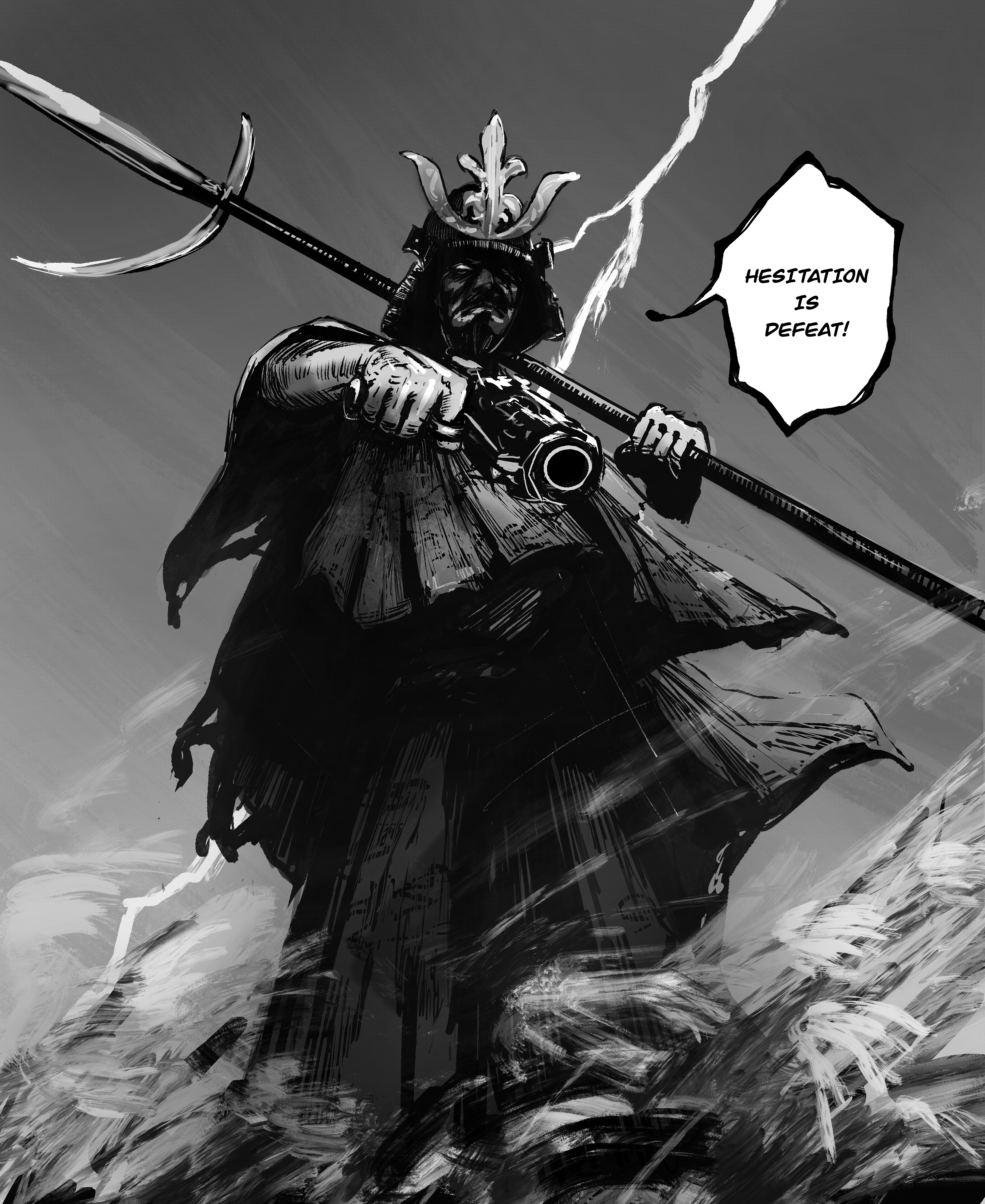This seems like a weird thing to ask since I’m on like my fifth playthrough at this point, but it occurred to me that I don’t really understand why all of Ashina is hostile to Wolf for most of the game. Isshin himself/Tenguseems to be on our side and wants us to succeed, unless youside with Owlor whenGenichiro brings him back, at which point he seems to just be bound to fulfill Genichiro’s wish.So what is actually going on? What is Genichiro’s motive? When did he go off-book? Why are all the guards and soldiers following him instead of their liege lord? Couldn’t Isshin just be like bro, chill? Couldn’t he tell his own men to stop trying to kill you? Does he even want to?On some level I accept that “It’s just game” and they needed to give you someone to fight. But especially in the late game when theInterior Ministryshows up and some of the soldiers are like, “Please save Ashina!” I’m like my brother in Amida Butsu, you’ve been trying to kill me on sight for this entire game.What am I missing here?


Genichiro hopes to use the power of the Dragon’s Blood to defend Ashina against its impending doom. Isshin, though nominally head of the Ashina clan, is old and sick and generally no longer suited to lead an army. His minor outings as Tengu to hunt spies have little meaning compared to the younger Lord Genichiro acting as commander of the Ashina forces.
Family honour will prevent him from openly opposing his own son, and loyalty to the land he fought to claim will prevent him from opposing its commander. De Facto, Genichiro is the ruler of Ashina at this point, and the troops seeking to defend it follow him.
Why do the troops react with hostility? For one, he’s not one of their own forces. Any Shinobi not in their service is a potential threat, and in a time where Ministry spies are creeping in all over, it may well be better to attack on sight. Additionally, his duty to protect the Divine Heir is at odds with Lord Genichiro’s ambitions to capture and coerce Lord Kuro to grant him the aforementioned power of Immortality. And finally, Genichiro believes Wolf to be dead.
All in all, there’s no reason he would instruct his soldiers to let Wolf pass. And with each step on Wolf’s bloody path to his master, there is one more reason to consider him an enemy: Depending on the player’s route and whether they go for 100%, they’ll have killed the leader of the Reservoir forces, two Generals and one tactical asset (the ogre) in the Outskirts, then the gate guard (Gyoubu), the next tactical asset (Bull), possibly another General in the castle exterior and an elite Samurai in the Dojo, not to mention a lot of soldiers and Nightjar on his path.
And that’s before Genichiro even becomes aware he actually does still live. Obviously, fighting and killing him will have earned Wolf no brownie points either.
As the Ministry forces invade near the end - probably aided by Wolf killing all those Generals and sidetracking Lord Genichiro who now had to go search for the black Mortal Blade - the Ministry forces become a bigger threat. The dying Ashina soldiers then begging Wolf for aid is a symptom of them being understandably scared of death and scared out of their mind. At that point, whatever control of his army Genichiro may have had will have dissipated. But still, he’s an enemy both to the Ministry forces who will make no distinction between Ashina and a random Shinobi, and to the remnants of the Ashina forces, if you kill the Ministry forces in one of their battles.
Sacrificing himself to bring back an apparently much stronger version of Isshin is a last-ditch effort to rescue his land. Isshin will be bound to honour his grandson’s sacrifice by doing his best to save Ashina. And even that effort is foiled, that final sacrifice put to waste. Isshin admires Wolf’s dedication and possibly appreciates him bringing an end to this mad search for Immortality, but for Genichiro, this will have been the most bitter of defeats: to give away everything, including both his humanity and his life, and still lose.
“In the end, I was powerless to stop it.”